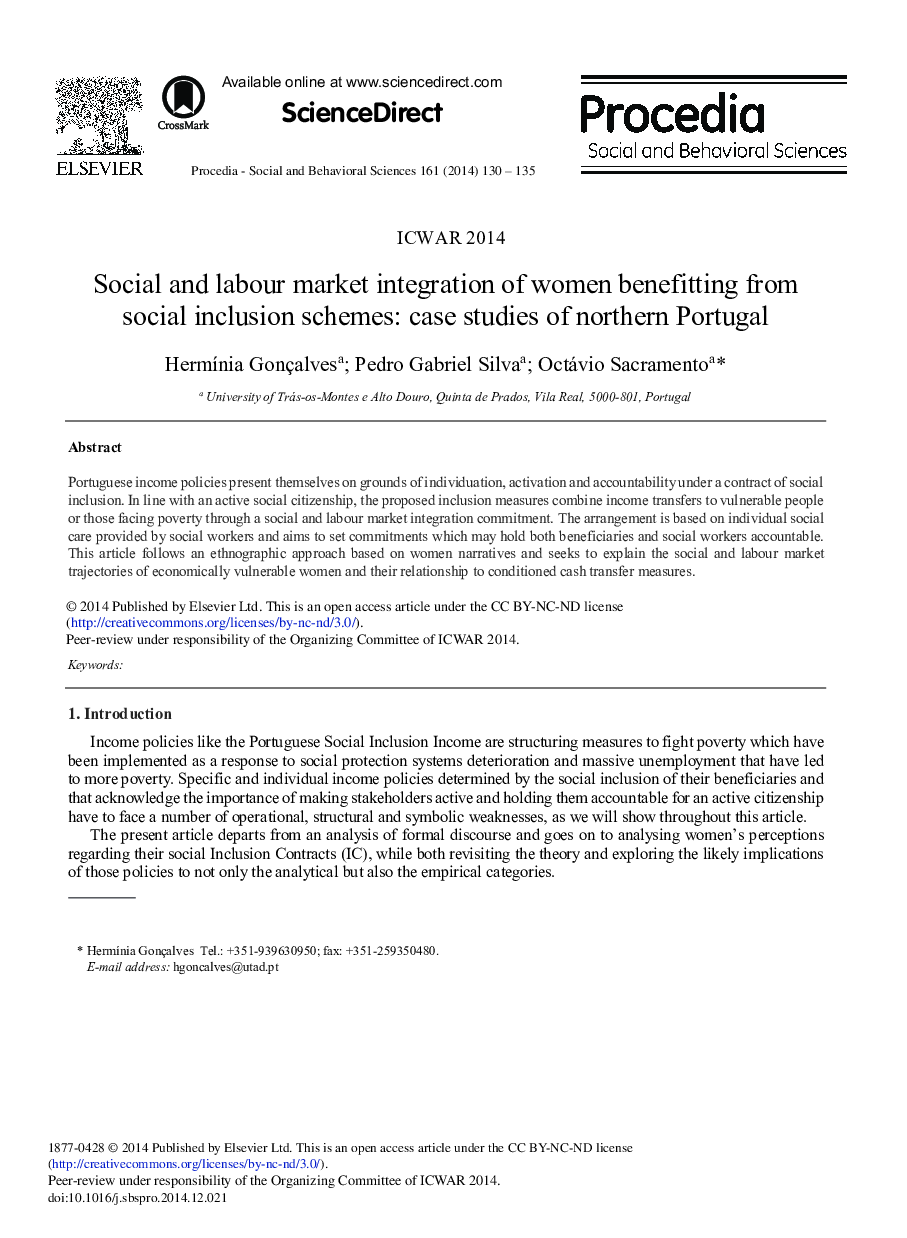| Article ID | Journal | Published Year | Pages | File Type |
|---|---|---|---|---|
| 1112854 | Procedia - Social and Behavioral Sciences | 2014 | 6 Pages |
Abstract
Portuguese income policies present themselves on grounds of individuation, activation and accountability under a contract of social inclusion. In line with an active social citizenship, the proposed inclusion measures combine income transfers to vulnerable people or those facing poverty through a social and labour market integration commitment. The arrangement is based on individual social care provided by social workers and aims to set commitments which may hold both beneficiaries and social workers accountable. This article follows an ethnographic approach based on women narratives and seeks to explain the social and labour market trajectories of economically vulnerable women and their relationship to conditioned cash transfer measures.
Related Topics
Social Sciences and Humanities
Arts and Humanities
Arts and Humanities (General)
